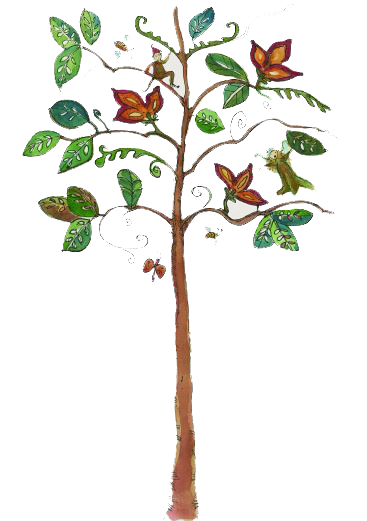Our younger group program for 2025 is:
A mixed age program (younger and older children in each group).
Children turning three by April 31st attend kinder for two morning sessions per week (9am - 12:30pm) on either a Monday and Wednesday or a Tuesday and Thursday. Morning tea is provided. Please note; conditions apply to attendance prior to a child’s 3rd birthday.
Please note; A child must be turning 6 in the year they attend the Steiner Stream prep program so please consider this when deciding which year to enrol your child into the kindergaten program.
Free, creative play - the very lifeblood of childhood - is considered the best preparation for self-realising adult life. The Steiner kindergarten strives to provide guidance for the young child in an environment where children are free to play and free to be children. The Steiner educator endeavours to create an environment that gives children time to play and encourages them to exercise their imagination and learn to conjure up ideas from within themselves.
The educational implications in the kindergarten program are to recognise the importance of imitation as a learning art. The child will learn much from imitation and example, more so than from merely being told things.
In the third year of life the child's play emerges into the world of fantasy, where the child is able to imagine that common items like a piece of wood have qualities of a car or a rolling pin.
The environment with which a child and his senses interact is of primary importance. The kindergarten environment aims to a nurture the senses, but not overwhelm them. The social environment, along with the adults who interact with the children can also influence them profoundly on a number of different levels.
Playthings are often objects collected from the natural environment, sea shells, nuts, pine cones, logs and other more conventionally shaped blocks. There are also cloths in plain, beautiful colours, and hand carved wooden animals or houses. The outside play area is also very important. It should be effectively a children's garden where they play alongside plants, flowers and trees and experience the natural elements.
In free play, children are forever problem solving, whether in the social realm, the physical realm, or the psychological realm.
************************************************************************************************ Early Start Kindergarten (ESK) provides 15 hours of free or low-cost kindergarten per week for eligible 3-year-old children in Victoria for two years before they start school. To be eligible, children must be turning three by April 30th in the year they start kindergarten and be from a refugee or asylum seeker background, identify as Aboriginal or Torres Strait Islander, or have had contact with Child Protection. Please contact us at taraleigh.steiner.kin@kindergarten.vic.gov.au to enquire about ESK enrolment entry.
************************************************************************************************
A Kindergarten Fee Subsidy (KFS) provides financial assistance to eligible families to reduce the cost of kindergarten for their child with the aim to make kindergarten more accessible and affordable. The KFS is available for both three- and four-year-old children attending funded kindergarten programs. The subsidy is automatically applied by the kindergarten service on behalf of eligible families. Families can access the KFS -
· if your child identifies as an Aboriginal and/or Torres Strait Islander
· if your child is identified on their birth certificate as being a multiple birth child (triplets or more)
· or if your child holds or has a parent or guardian who holds, one of the following:
- a Commonwealth Health Care Card
- a Commonwealth Pensioner Concession Card
- a Department of Veterans Affairs Gold Card or White Card
- Refugee or Asylum Seeker visa (200-204, 786 or 866)
- Bridging visas for any of the above Refugee or Asylum Seeker visas
